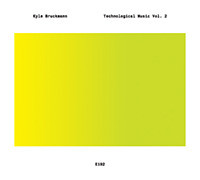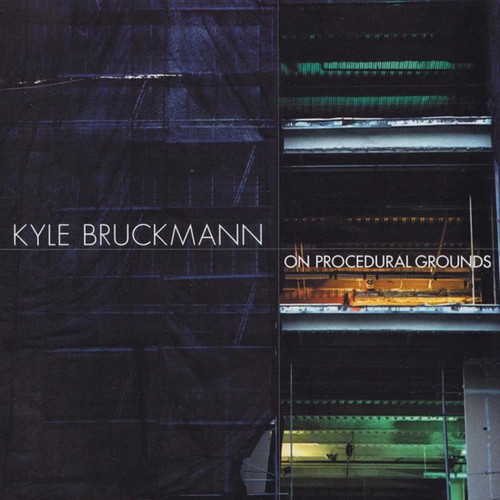Kyle Bruckmann
Technological Music Vol. 2
A series of calculated disasters wherein compositional intent is exercised to varying degrees before and or after the moment of performance. The Irreproducible Results are single-pass, unedited improvisations featuring borrowed gear configured to maximise complexity and minimise predictability. The remainder are heavily edited constructions utilising detritus of the aforementioned experiments, with the Pulse Matrices continuing a game of formal telephone begun on Vol. 1.
Tools include oboe,…
Technological music
An oblique response to various antecedents of pulse-based electronic music without recourse to drum machines or sequencing (or — in the case of the Four Investigations — synthesizers). Tools include oboe, English horn, analogue synthesis and malfunctioning electric organs and piano. Mastered by Giuseppe Ielasi. Gratitude also to Niko Wenner and Monica Scott. Dedicated to Michael Randers-Pehrson, Jeff Bollaro, and HK Kahng — stalwart comrades in my very earliest electronic music misadventures.
Cracked Refraction
Cracked Refraction ties its complex knots with infectious vigor and a predilection for playfulness. Wrack’s melodies are slithering and serpentine, and the music is built of smaller segments assembled in what can seem a slapdash manner, with all sorts of jutting ends and unexpected collisions. What Bruckmann’s done, though, is intentional, placing his players on different planes, with straight lines failing to meet, runs of notes ricocheting at impossible angles, and expected avenues folding in …
On Procedural Grounds
n his compositions, composer/performer Kyle Bruckmann seeks to integrate rigor and internal logic with raw immediacy while fully engaging his fellow performers as not simply dutiful interpreters, but creatively invested collaborators. Aesthetically, the results evoke much from European modernism, but realized via idiosyncratic modular forms and process-oriented strategies equally indebted to the New York School and the jazz avant-garde. On Procedural Grounds (2010) is a half-hour work conc…


